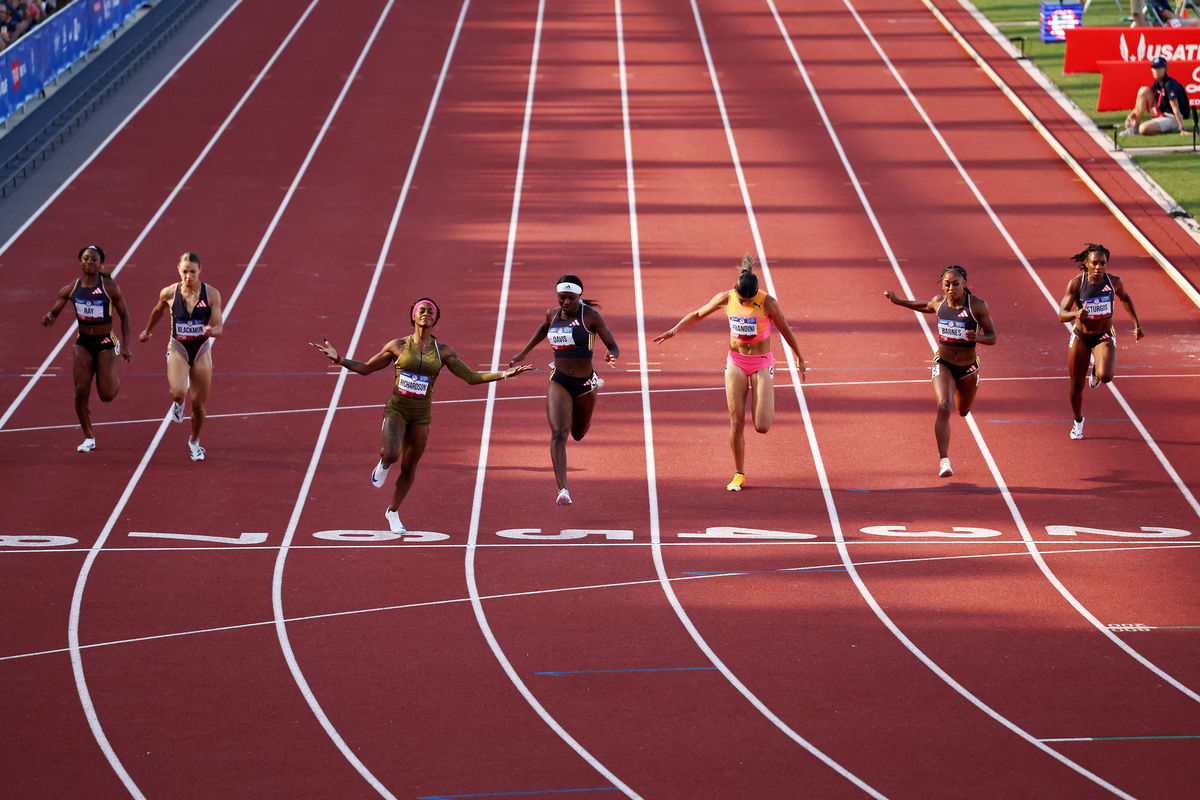
Getty
EUGENE, OREGON – JUNE 22: Sha’Carri Richardson crosses the finish line of the women’s 100 meter dash semi-final on Day Two of the 2024 U.S. Olympic Team Track & Field Trials at Hayward Field on June 22, 2024 in Eugene, Oregon. (Photo by Patrick Smith/Getty Images)

Getty
EUGENE, OREGON – JUNE 22: Sha’Carri Richardson crosses the finish line of the women’s 100 meter dash semi-final on Day Two of the 2024 U.S. Olympic Team Track & Field Trials at Hayward Field on June 22, 2024 in Eugene, Oregon. (Photo by Patrick Smith/Getty Images)
Netflix’s track and field docuseries, Sprint, has released its second season recently. Unfortunately, while the producers expected an overwhelming response, the docuseries has been met with some significant criticisms. Soon after the series was released, it received backlash for being too much of Noah Lyles and America-centric. As a matter of fact, a significant amount of screen time has been occupied by Noah Lyles. Followed by Gabby Thomas who got a significant amount of exposure.
Watch What’s Trending Now!
However, when it came to the other athletes, well, it was a sad story. Angered by unfair treatment, athletes like Letsile Tebogo, Akani Simbine, and even Julien Alfred spoke out about the documentary. The most vocal among the athletes was the 200m Olympic gold medalist, Tebogo. He immediately pointed out that the African athletes received almost zero or less screen time. Simbine too, echoed similar sentiments as he mentioned that ‘Sprint’ only revolves around a set pack of athletes while completely ignoring the others.
ADVERTISEMENT
Justin Gatlin unhappy with lack of personal touch to the athletes’ story
Now, a former track and field legend from the US has added further fuel to the ‘Sprint’ controversy. Speaking on the ‘Tidal League’ podcast recently, Justin Gatlin mentioned that he expected much more depth in storytelling from the directors. Gatlin felt that the narrators were trying to provide a build-up to the Olympic games for all the athletes.

Getty
LONDON, ENGLAND – AUGUST 04: Justin Gatlin of the United States competes in the Men’s 100 metres heats during day one of the 16th IAAF World Athletics Championships London 2017 at The London Stadium on August 4, 2017 in London, United Kingdom. (Photo by Shaun Botterill/Getty Images)
The 42-year-old then pointed out that the Olympics story is a well-known one that has been told several times. Criticizing the approach, Gatlin stated, “They did touch on some personal aspects, like in Tebogo’s case, about his mother’s passing and how it affected him. But I feel like you got more information from the narrators-like Otto, Allison, and Michael-than from the athletes themselves. It didn’t feel like the athletes had the chance to really open up and share enough for me to say, “Okay, I get it now.'”
ADVERTISEMENT
Agreeing with Gatlin’s take, co-host Rodney Green stated that the lack of personalization was clearly visible. Green even went on to question the track and field knowledge of the producers. According to the track enthusiast, the sole focus of the documentary was to highlight who the best athlete was and put all the coverage on him. But that is not how track and field worked. In fact, owing to the volatile nature of the sport, Gatlin’s co-host stated that there were no fixed ‘best athletes’. An athlete might perform well this season, but there might be another one who takes center stage in the upcoming days. However, this was not the only criticism coming from Justin Gatlin about the ‘Sprint’. Just like Tebogo and Simbine, Gatlin and Green too, seemed offended with how the African athletes were treated.
Top Stories
Another Almost Fatal Disaster Surfaces From Statesville Airport Amidst Ongoing Greg Biffle’s Crash Investigation
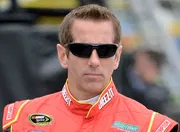
Prayers Pour In From Terrell Owens as 275lbs Former Cowboys Player Announces Major Health News
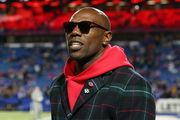
Tiger Woods & Charlie Woods Paid Special Homage by Annika Sorenstam’s Son at PNC Championship
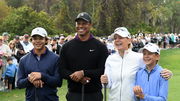
NTSB Appeals for Greg Biffle’s Wife’s Alleged In-Flight Text Messages as Crash Investigation Heats Up

Josh Allen Makes Lifetime Buffalo Announcement as Pregnant Hailee Steinfeld Receives Bills QB’s Clear Family Plan

Travis Kelce Reveals Real Reason Behind Decision to Snub the Media Amid Retirement Rumors

ADVERTISEMENT
Sprint-2 faces criticism over lack of African athlete representation
Veteran athletes like Justin Gatlin and track coach Rodney Green have voiced sharp criticism against a few aspects of the series. Mainly, the glaring absence of African athletes’ stories in the series. While the docuseries, backed by Box to Box Productions, successfully captured the drama and dedication of the sport, it missed a vital element. Stepping on the way of focussing on American athletes, the series failed to capture much of the growing force of African sprinters.
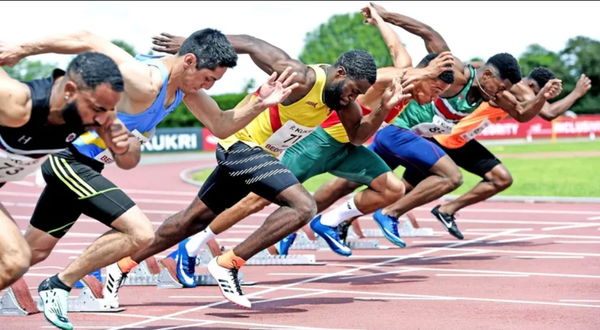
ADVERTISEMENT
For Green, this oversight was clear as he pointed to the surging talent coming out of African nations like South Africa, Liberia, and Ivory Coast. “There’s a whole emergence of young kids who he’s fostering behind him who will carry the torch,” Green noted. He further referred to Akani Simbine’s impact on the next generation of sprinters. And Green’s words highlighted one pervading question in the minds of track enthusiasts. Why are these athletes, whose journeys have often been dominated by adversities, not getting the spotlight they deserve?
African sprinters like Ebony Morrison and Derartu Tulu have overcome tremendous odds to achieve success on the global stage. However, the fact that their tales were not told by the documentary was another significant disappointment. Morrison’s rise after winning the African Championship in the 100m hurdles and Tulu’s pioneering victory as the first Ethiopian woman to win an Olympic Gold Medal are achievements that could inspire millions. Yet, they could not secure a place in the globally acclaimed Netflix docu-series. Focussing on the importance of inclusivity, Green added, “As Green put it, “It’s difficult to put everything in a docuseries like Sprint 2”.
ADVERTISEMENT
Taking Rodney Green’s side, Gatlin too voiced frustration over the docuseries’ emphasis on Noah Lyles and Fred Kerley. According to Gatlin’s opinion, it seemed to diminish the importance of hurdlers and the women’s side of the sport. “Hurdlers are sprinters too,” Gatlin emphasized, arguing for a more comprehensive portrayal that includes all facets of track and field. Gatlin’s and Green’s perspectives throw light on a very important aspect. For the documentary to be truly representative, it must highlight not only the men but also women and the underappreciated athletes. As their stories, struggles, and victories also contribute to the sport’s rise.
ADVERTISEMENT
ADVERTISEMENT
ADVERTISEMENT

